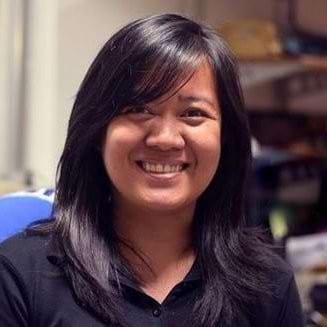French visit before the Parcours Ouvert reception in Manila
Higher EducationInternational
22 Jun 2023

Erees Queen B. Macabebe is Chairwoman of the Department of Electronics, Computer and Communications Engineering at Ateneo de Manila University. Her department is preparing to welcome a group of 22 Parcours Ouvert students from France and Central Africa, who will be enrolled in O3 next September. Visiting Toulouse at the beginning of June, to present her work at the Icam Research Days, she talks about her discovery of the pedagogical particularities of this training course.
What do you think of Ateneo’s hosting of the Parcours Ouvert O3 program this year?
The partnership between Icam and our university goes back more than 20 years, as our department already welcomes Icam students for their research. Welcoming the O3 this year is a highlight, because it shows that this partnership is growing. We’ve gone from a handful of students to a group of 22, which is no mean feat! The Open Course program is very different from ours at Ateneo. We’re used to offering courses throughout the semester, whereas for the Open Course, they only do one module, over several weeks. I must therefore salute the efforts of the Parcours Ouvert team at Ateneo, who have prepared all the necessary courses that we will be offering to the incoming class. So it’s a challenge, but it’s also exciting because the pedagogy will be different, especially Problem Based Learning (PBL). We already knew about it, but the fact that it’s integrated into the curriculum will be a novelty for us. What’s more, the training our teachers will receive through this O3 group will, I think, bring a different flavor to the way we teach our courses. And I hope we’ll be able to adapt it to our traditional programs too.
Are there any plans for your campus to recruit and train Filipino students for the Parcours Ouvert, and thus go further than just hosting O3?
Yes, there are plans to do so, but we need to work on the entire program. This won’t happen before 2025 or 2026. That’s why, as of this year, we’re starting to move forward by hosting O3s, and will continue to do so for the next three years.
What are the benefits for Ateneo students and teachers of taking part in the Parcours Ouvert program?
We hope that when the O3s come to our university, it will be a good opportunity for our students to interact with them. This was already happening, but in small numbers. Now we’re talking about 22 students! We hope to be able to integrate the French and African pupils into our students’ activities, so that they can exchange ideas and learn about new cultures and ways of seeing things, for mutual enrichment. And for teachers, it’s training in pedagogies like PBL that will enrich our ways of teaching.
How do you see the contribution of the Parcours Ouvert program in the Philippine context?
As I mentioned, the program itself is very different from the way we teach engineering. In the Philippines, our programs are very much rooted in the discipline being taught. So you get a degree in electrical, electronic or computer engineering, for example, while the concept of general engineering doesn’t exist. So this is something new in the Philippine education system. I don’t know how it will be received, but we’re very optimistic, given Icam’s experience. In fact, we have a few students who went to Icam and finished their Masters here, and we’ve seen them flourish in different industries.
How did you go about preparing to welcome these O3 students from the Parcours Ouvert?
I have to admit that it was a real challenge for us. We had to match the different Open Path courses with the way Ateneo delivers its courses, because we always have to conform to the way the university teaches. We have to make sure that the Ateneo core curriculum is still integrated into the new Icam curriculum. I really salute the efforts of the Filipino team working on the Parcours Ouvert, not only in the School of Science and Engineering, but also in the School of Social Sciences, the School of Management and the School of Humanities. We have, in fact, involved four schools to ensure that we offer an Open Course with an “Ateneo color”.
During your visit to the Icam Toulouse site in France, did you take the opportunity to discover Icam’s unique pedagogical features?
Indeed, I attended the PBL Zero training course with several lecturers, and this introduction gave me a good idea of the structure of problem-based learning, how it works and the role of the tutor. It was a very interesting first contact, and of course I’ll be following the full sessions in the Philippines, when we’re all trained in PBL.
I also attended the final O2 project, known as the “boat project”, which gave me a good idea of what to expect from the students. Initially, when I was told about the Habitat project in O3 I thought “Oh my God, the students are going to build a house, can they really build a house?” But as I listen to the students, I also realize that it’s really up to them how they go about it, and they can also decide to improve the design the following year. In short, it takes some of the pressure off me!